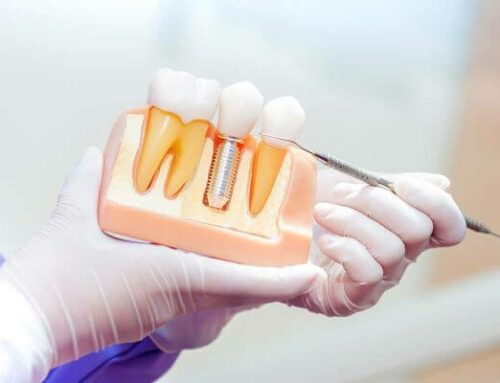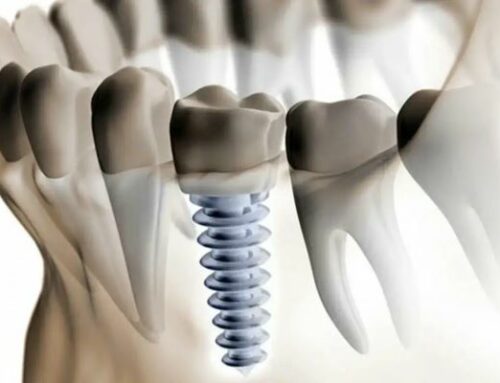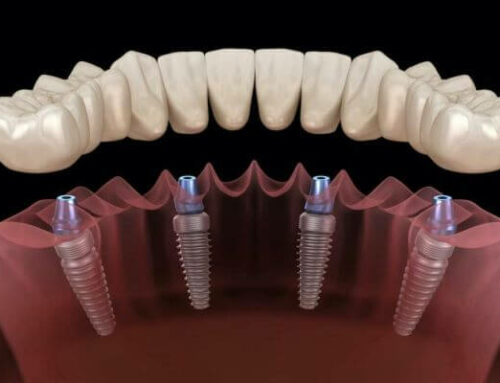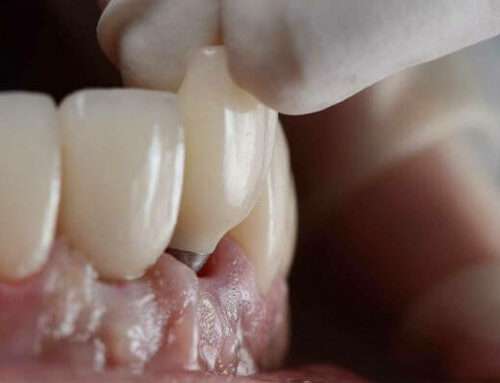Dental implants vs. crowns. If you’re missing teeth, it can be difficult to choose between the two. Both are equally good because they restore the health and beauty of your teeth. However, every situation is different, so dental evaluation and advice are important in this regard. According to statistics, implants have a 98% success rate, while crowns have a 95% success rate at 5 years. While both are great ways to keep your teeth healthy, you must know the key differences between them.
1. Crowns vs Implants: Why and How Are They Different?
Dental implants or crowns, which is better and why? We aim to answer these questions for you with the necessary information. Both crowns and implants are restorative dental procedures that fix many dental problems. Sometimes they are considered substitutes, so the technical differences between them must be well understood.
- Differences in Structure and Design
- different purpose
- process difference
- difference in price
- Compositional differences, i.e. materials
- life difference
- placement difference
2. Differences in structure and design
The first factor that distinguishes crowns from implants is their design and construction. Dental implants basically replace the entire tooth from the root with the help of titanium abutments. Abutments are placed in the root zone that mimics the new root structure. Dental bone grafting is a method of restoring bone density when substantial bone loss has occurred due to injury. Crowns, on the other hand, are cap-like restorations that only replace the damaged part of the tooth without touching the root.
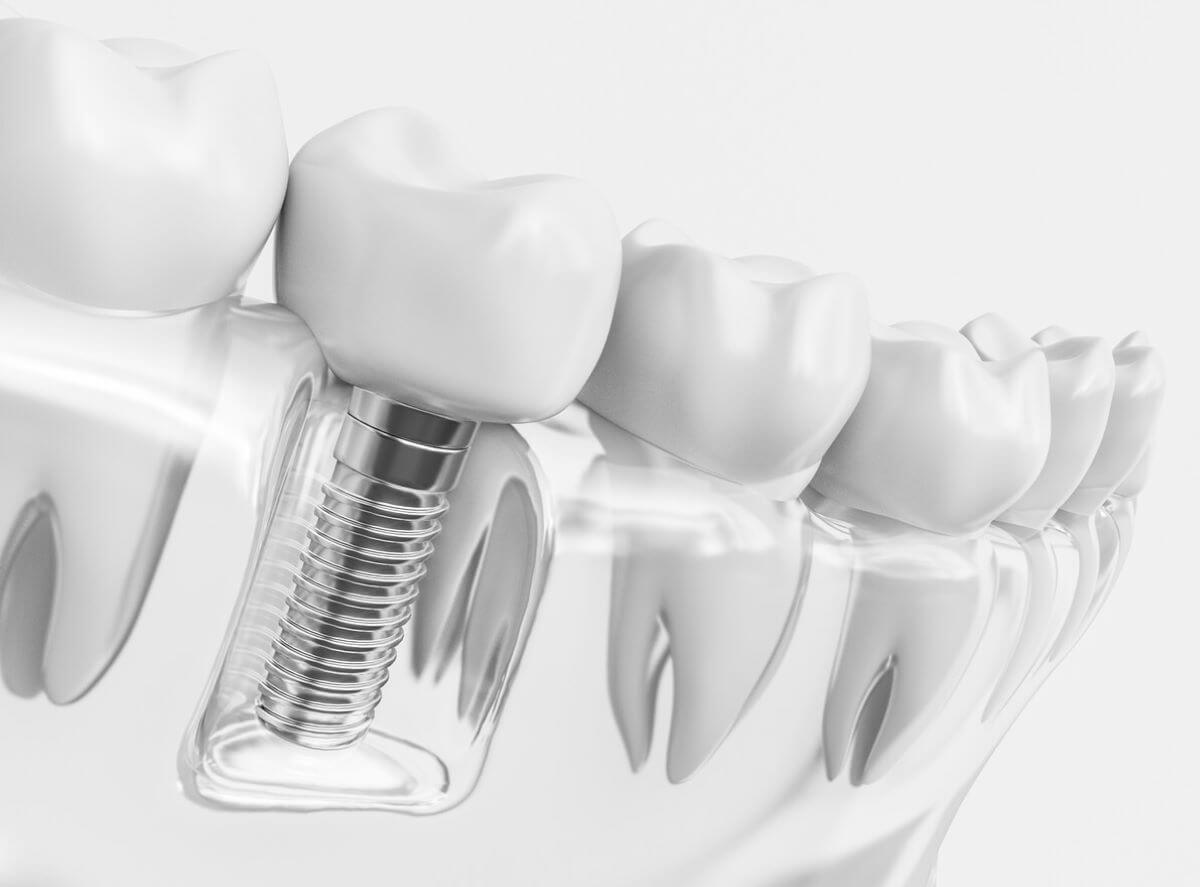
3. Different purposes
Implants and crowns may seem interchangeable, but they actually serve different purposes. An implant replaces the entire tooth and its root, while a crown only replaces the damaged part of the tooth. Dental implants are better for patients facing severe damage or decay leading to tooth extraction. In contrast, crowns are effective when the tooth can be repaired and the damage has not penetrated the root.
4. Process differences
Dental implants are a much longer process than crowns. As we mentioned before, dental implants replace the entire tooth along with the root, so the process is more complicated and time-consuming. A crown usually does not last longer than 3-4 weeks as it involves treating the superficial portion of the tooth.
Evaluation and preparation for implants require about two appointments. Since bone-shaped titanium abutments are grafted into the root area, bone growth takes about 3-4 months. After the gums and bone have healed, screws and crowns are placed to obtain the complete tooth structure. The whole process takes 3-4 months. In contrast, crowns require only one appointment for evaluation and the rest of the process takes 3-4 weeks. Certain types of crowns require only one sitting, and patients don’t have to wait long for their teeth to heal.
5. Price differences
Prices for dental implants and crowns vary by procedure and equipment. Implants cost more than crowns because the procedure is much more complicated. Crowns, on the other hand, have a standard price and vary by material. Among dental crowns, porcelain, and zirconia veneers cost the most. In implants, the cost of titanium and zirconium abutments is higher than that of other metals. There is also an additional cost for the crown, depending on the material chosen.
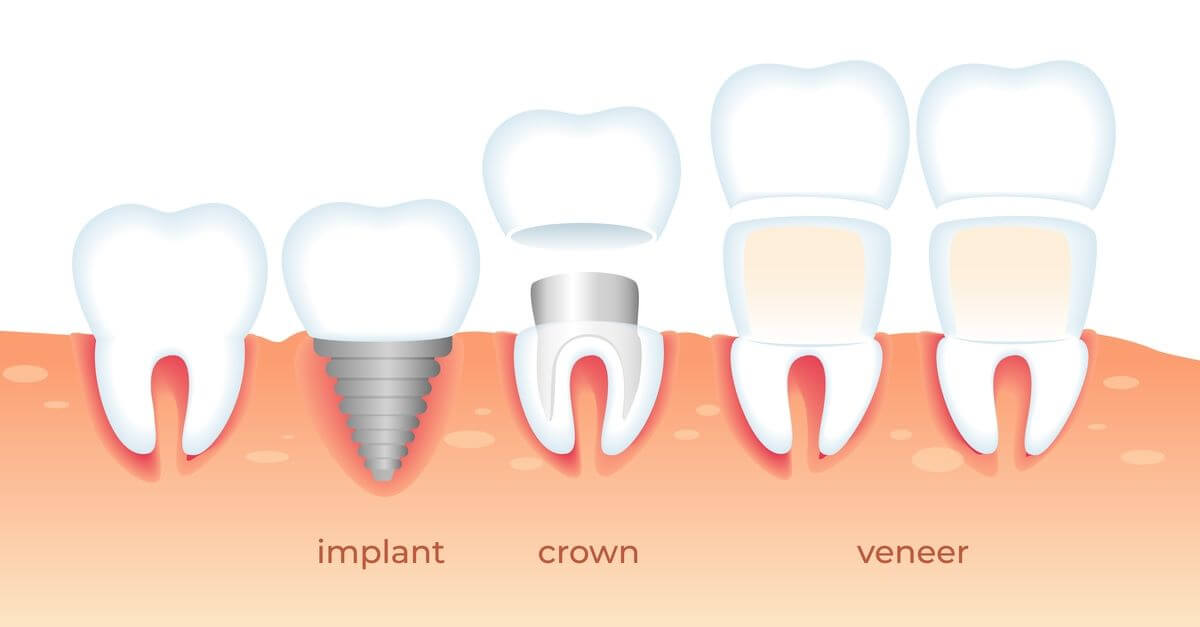
6. Compositional differences, i.e. materials
As mentioned above, there are several options for composite materials for implants and crowns. However, the options available in implants are limited due to the complexity of the procedure. Ensure biocompatible materials are used for the implants as they are in direct contact with the bone and gums. The abutment most often chosen by dentists is titanium because it responds well to other materials. Other materials include aluminum and zirconia. Crowns, on the other hand, are available in a variety of materials. With more options, patients can choose according to their budget.
7. Difference in Lifespan
The length of crowns and implants also makes them different from each other. With proper attention to oral hygiene, crowns can be expected to last 10-15 years. Temporary veneers will not last more than 5 years due to cheap materials such as composites. Since the implant replaces the entire tooth starting from the root, the highest quality products are used. On average, implants are expected to last 20 to 30 years with consistent oral care habits.
8. Placement differences
While dental implants are successful on any tooth, crowns are more successful on back teeth. This happens because implants are root replacements, so you start with a new tooth from scratch. A crown, on the other hand, restores the damaged part of the tooth and replaces it with a new occlusal surface.
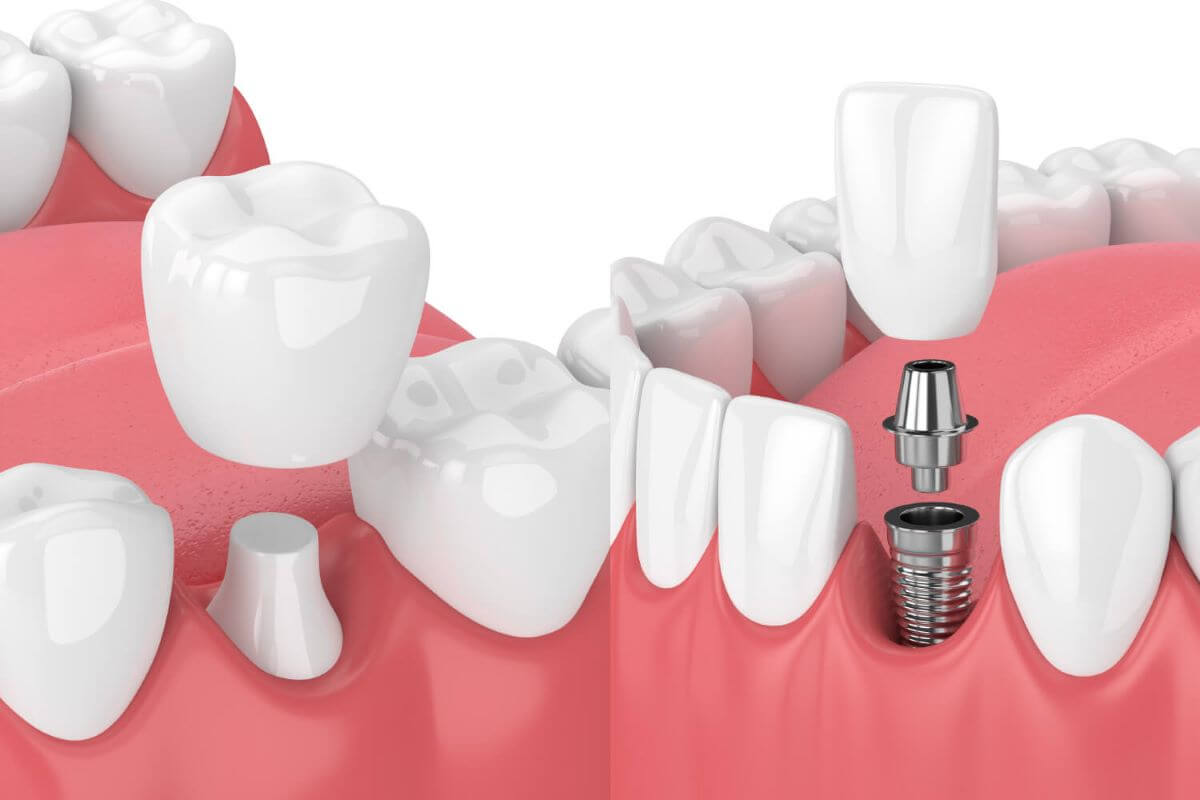
9. Advantages of crowns and implants
- They rebuild the tooth structure: The biggest advantage of dental implants is to restore and rebuild the complete structure of the tooth. They act as natural teeth and blend in with the rest of your teeth. A crown also rebuilds the biting surface of a tooth so it can work properly with other teeth.
- Long-term investment: Both dental implants and crowns last a long time. With proper care and dental hygiene, you can expect both to last for decades. Although they may be relatively expensive, they can keep you away from possible dental problems for a long time.
- Prevents bone loss: Implants and crowns both rebuild damaged teeth by bringing the upper and lower jaws into overall alignment. When teeth are aligned, there is less chance of bone loss or other bone irregularities.
- Both look natural: both implants and crowns mimic natural teeth and look realistic. The process of implants is completed with crowns to ensure they look real. A crown can also replace the damaged upper part of the tooth, restoring the tooth’s natural appearance. So if you have a qualified cosmetic dentist, both are worth the money.
- Low maintenance: Implants and crowns are long-term dental investments. This basically means not only that they last a long time, but also require little maintenance. Titanium implants and porcelain or zirconia crowns outlast all other types of material. You just need to maintain good oral health and healthy teeth. Additionally, one of the most common maintenance options is to have your teeth cleaned once or twice a year.
10. Disadvantages of crowns and implants
- Long program: One of the downsides of implants is that the program is a little too long. Crowns can also take a long time, especially if root canal treatment is required.
- Expensive procedures: Because implants are complicated and time-consuming, they can be expensive. Crowns can be a bit expensive, especially all-ceramic and zirconium crowns.
- Non-conservative surgery: Both implants and crowns are relatively non-conservative surgeries. Tooth preparation for implants is more intensive than crowns because they involve inserting the device in the root area.
- Minimal aftercare: When implant or crown surgery goes well, few complications are to be expected. The only requirement is to maintain dental hygiene through regular brushing, flossing, and visits to the dentist.
- Possible side effects: If the procedure is not successful, there may be some side effects. If implants or crowns are not fitted properly, there is a risk of gum infection, swelling, or bleeding. This is why it is important to choose a professionally qualified cosmetic dentist.
11. What is the difference between an implant crown and a regular crown?
Implant crowns and standard crowns may be the same, but their processes are different. A dental implant crown is applied after the implant procedure to secure the underlying abutment. Standard crowns, on the other hand, are placed after scraping away the damaged portion of the tooth. The implant procedure requires a crown because it holds the implant in place and mimics real teeth. A standard dental crown is placed to restore a tooth’s damaged health when it is decayed or damaged. Similar materials are used for implant crowns and standard crowns.
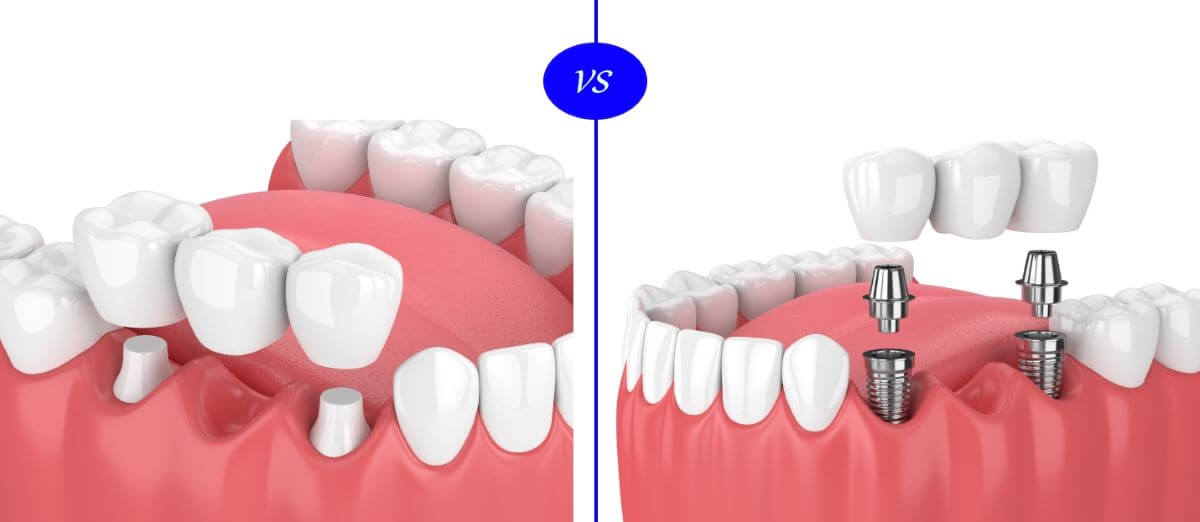
12. Crowns vs Implants: Which Is Right For You?
While a dentist’s advice is crucial when deciding between crowns and implants, the following are common questions to which they apply. Because implants replace an entire tooth along with its root, they can be placed wherever a tooth is missing. Crowns are more effective in cases involving extensive cavities, partial tooth fractures, etc.
| You can get implants if you have: | You can get a crown if you: |
| Many or all missing teeth | Extensive rot that does not penetrate deep into the roots |
| Tooth extraction due to extensive decay | damaged or broken teeth |
| If you are allergic to metal or any other material | tooth discoloration |
| Gap between teeth |
